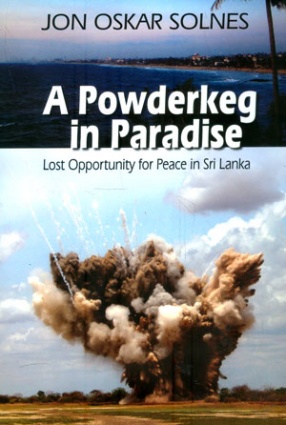Over a quarter of a century ago, civil war erupted in Sri Lanka, turning a tropical island in the Indian Ocean, renowned for its beauty, into a theatre for a protracted conflict of barbaric bloodletting, which cost up to ninety thousand inhabitants their lives. Initially the conflict was sparked by an uprising of armed groups of angry young men claiming to represent the mainstream Tamil minority in the northern and eastern provinces of Sri Lanka. Their struggle against perceived political domination by the Sinhalese majority, turned into an outright war fought by the Security Forces of Sri Lanka against the Liberation Tigers of Tamil Tigers, an organization branded both in the USA and Europe as one of the deadliest terrorist outfits in the world, acquired an aura of both fighting efficiency and enormous brutality, honing asymmetric and unconventional warfare skills such as the widespread use of suicide bombing by its infamous Black Tigers.
After two decades of internecine warfare interrupted sporadically by weak and futile attempts at cessation of hostilities, a comprehensive Ceasefire Agreement (CFA), brokered by Norway, was cosigned by the Parties to the conflict. The CFA offered a window of opportunity for finally finding ways to a negotiated peace as the guns were silenced temporarily. The devastating impact of the Tsunami in late 2004, furthermore, earned Sri Lanka considerable sympathy in the world resulting in a major influx of external aid and goodwill. However, having suffered tens of thousands of dead in a catastrophe caused by nature, instead of burying the arms with the dead, Sri Lanka’s deadly ethnic conflict was rekindled and the island descended into a chaos of violence leading to full resumption of war.
This book represents an intimate and detailed inside account of the years of the CFA in Sri Lanka which ended with its formal abrogation by the Government of Sri Lanka in 2008. It describes the political and military contemplations of both Parties and goes behind the scenes and reveals and explains the background for countless devastating incidents of terror and war. It is a testimony of the vanity and obsession of interlocutors in the conflict that delayed and eventually derailed the peace process, squandering the best of opportunities for ending the war in Sri Lanka with a negotiated settlement.
The ethnic war in Sri Lanka lead to the draining of its economy, turning a potentially idyllic and beautiful island, blessed with abundant resources, an inviting climate and gentle and friendly people, into one of the most militarized states in Asia with a glaring lack of respect for human rights.




There are no reviews yet.